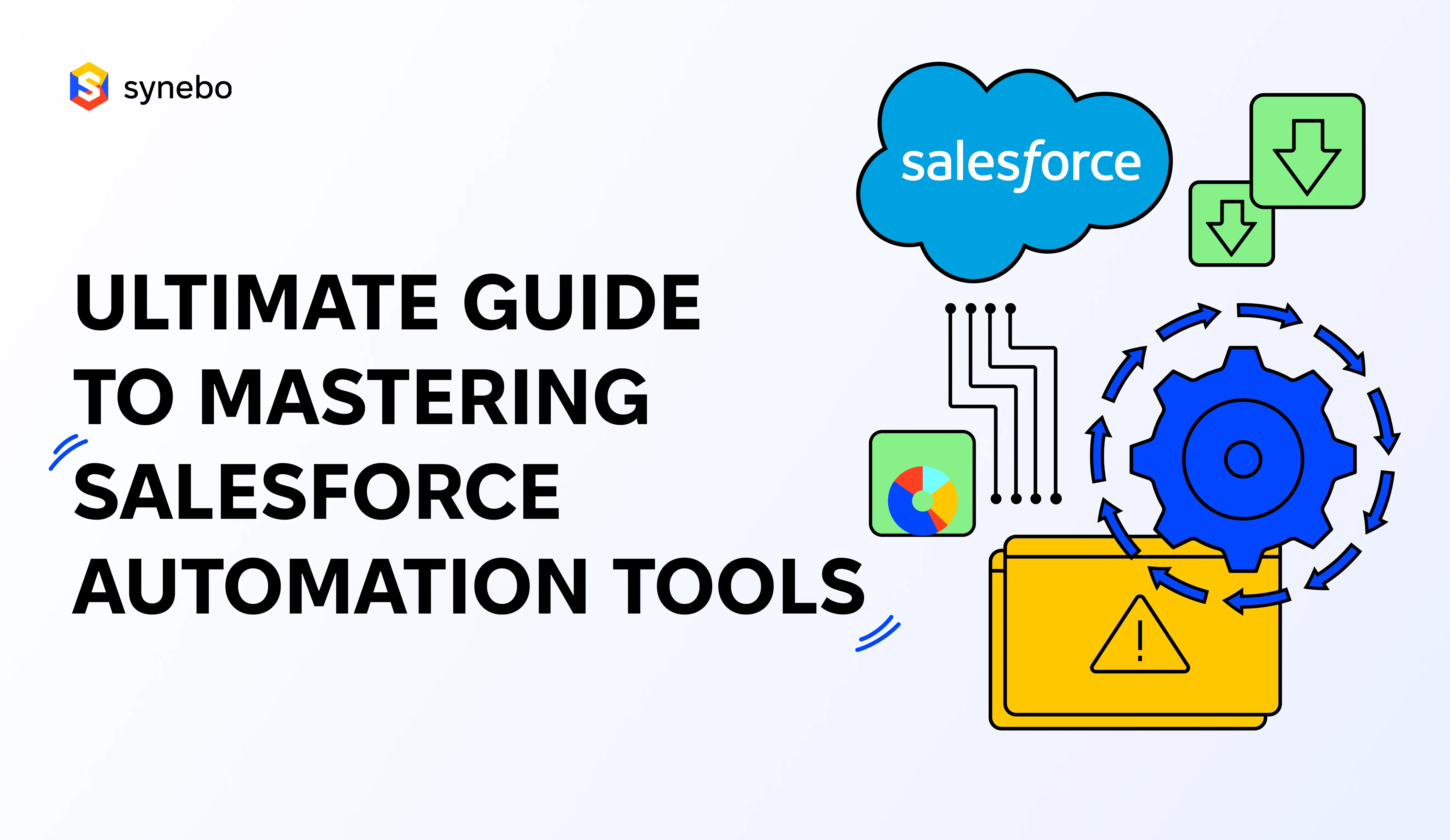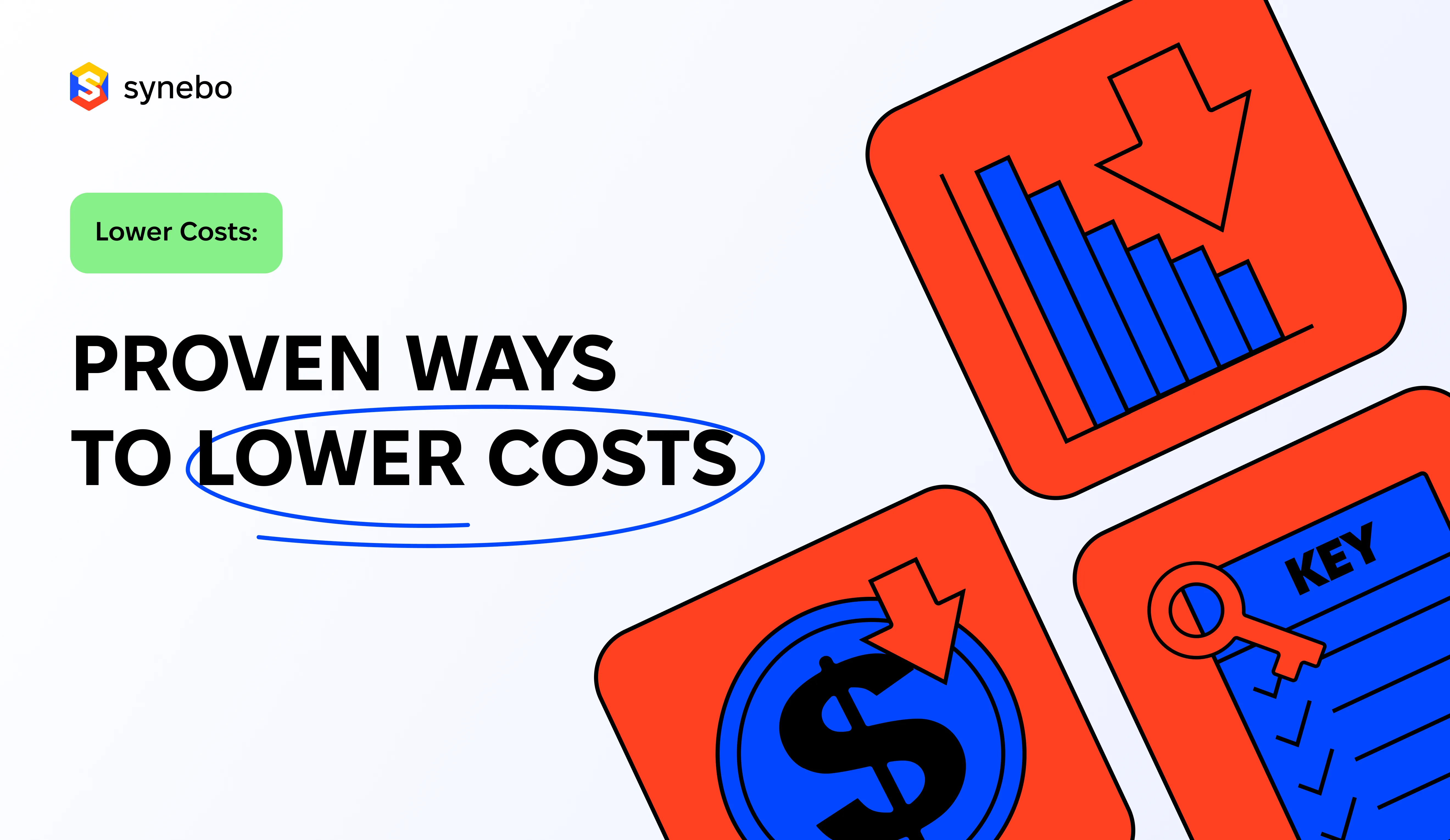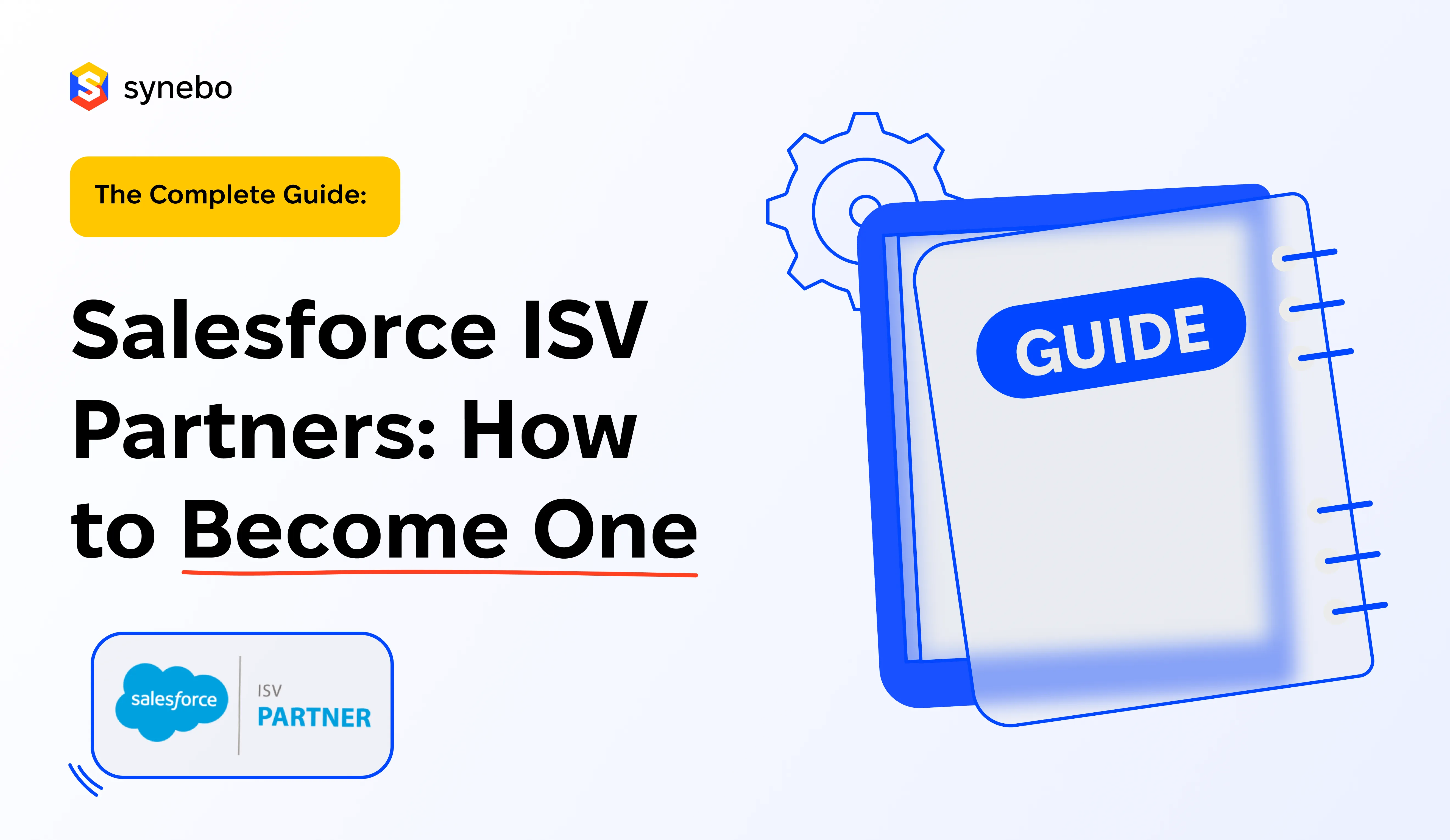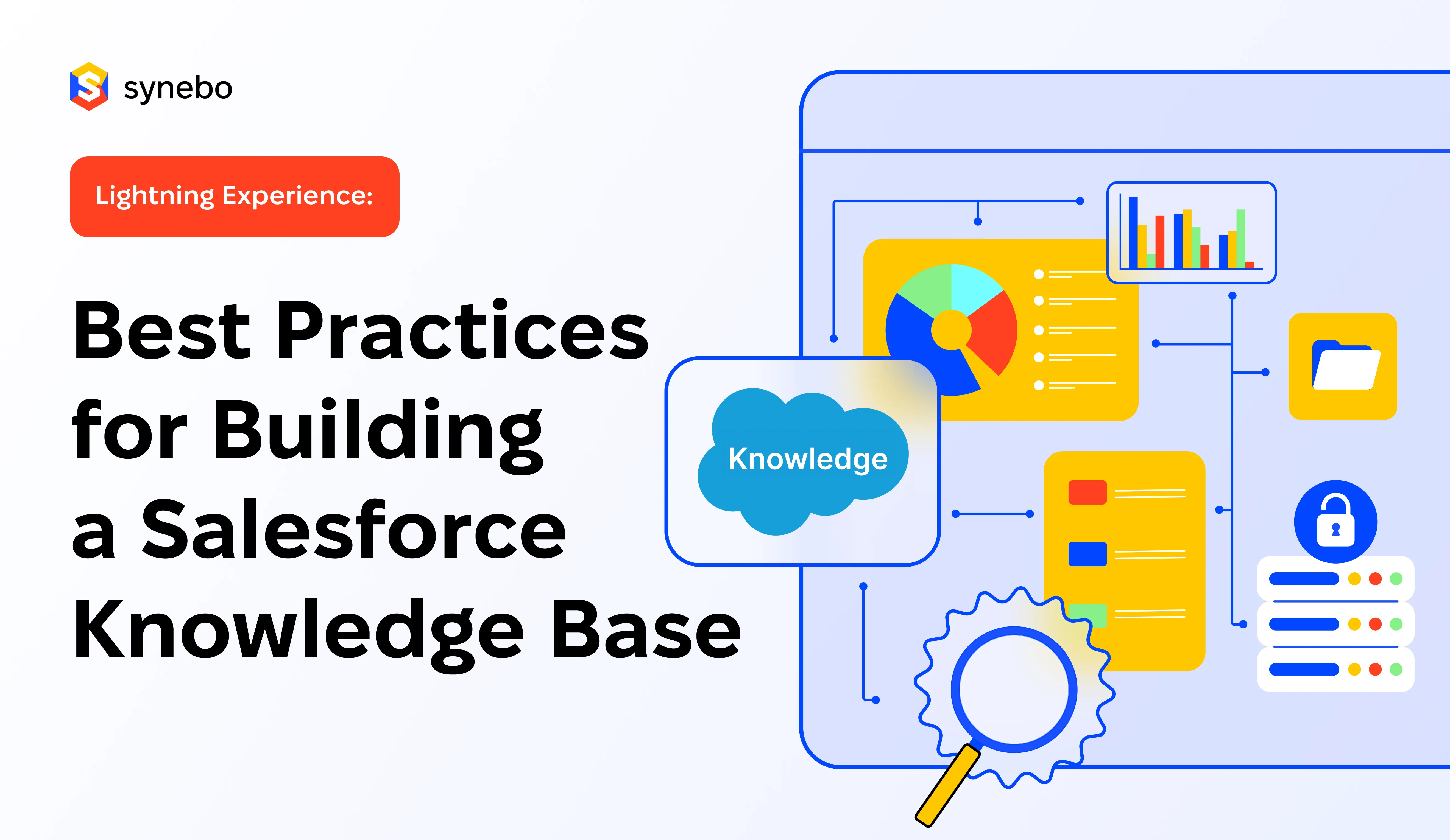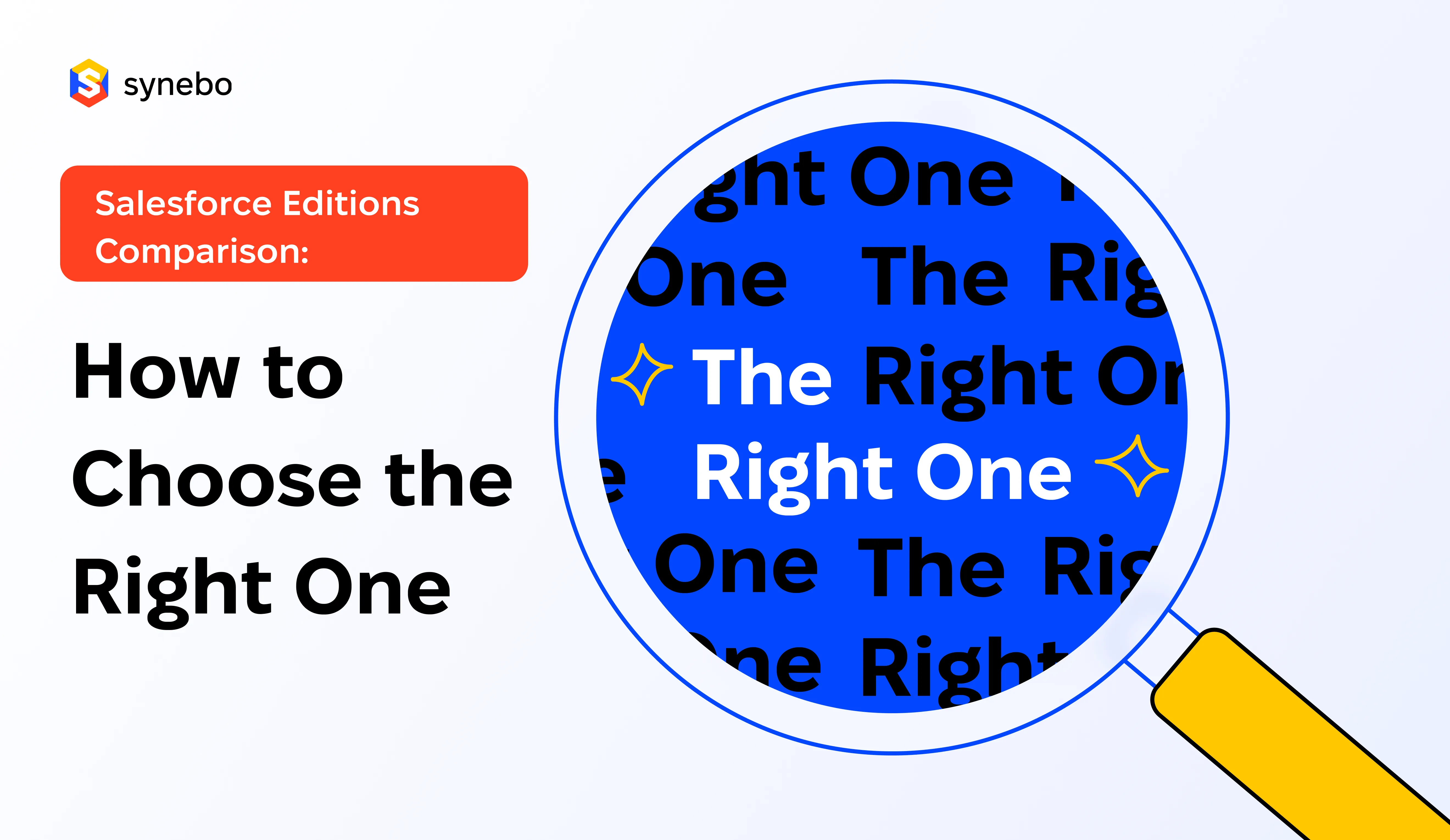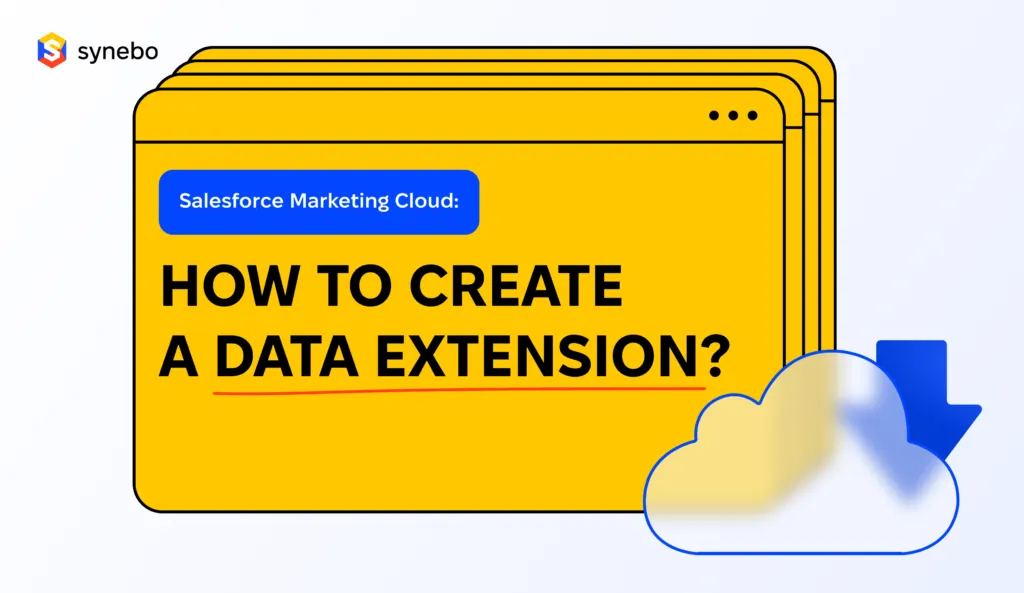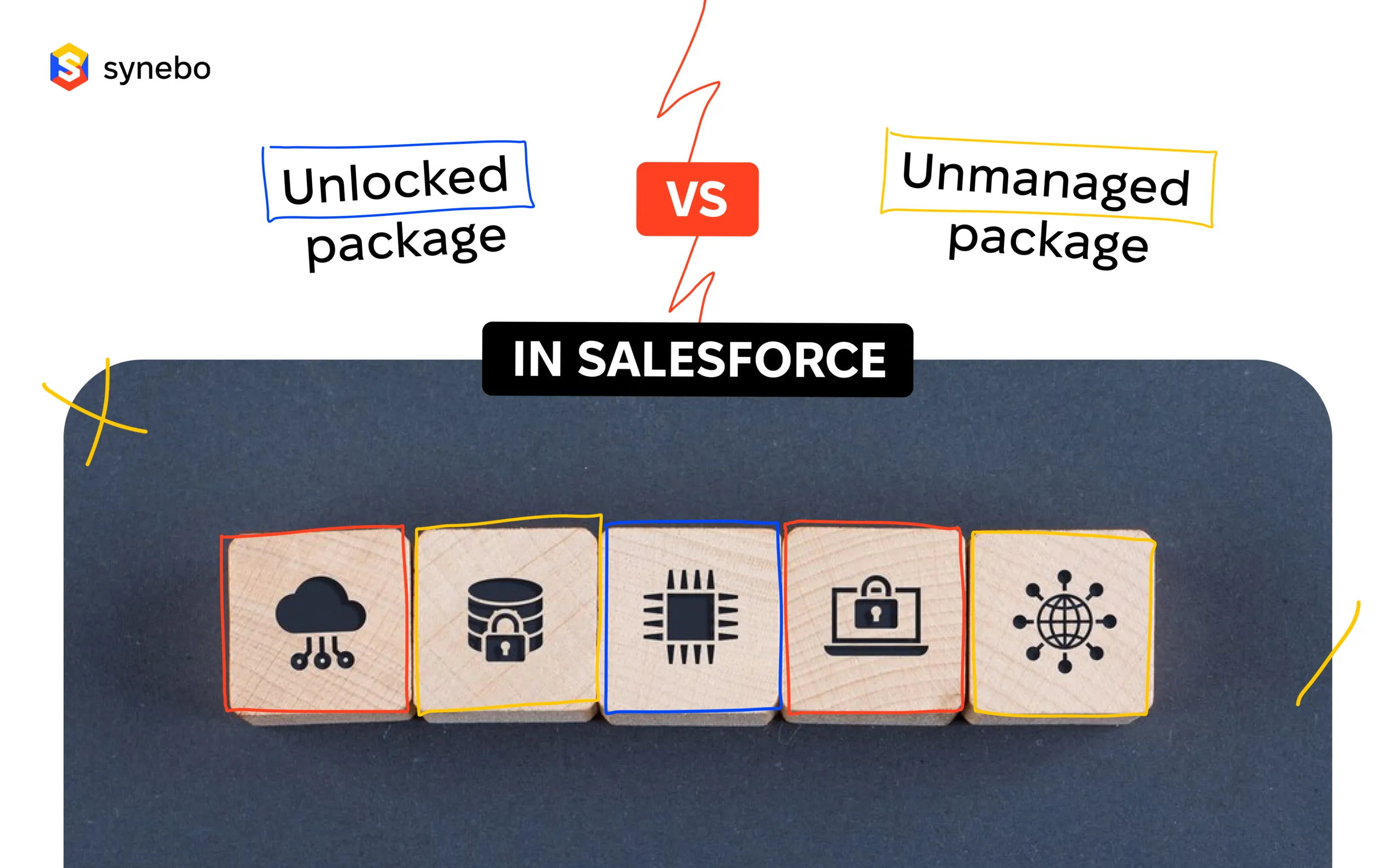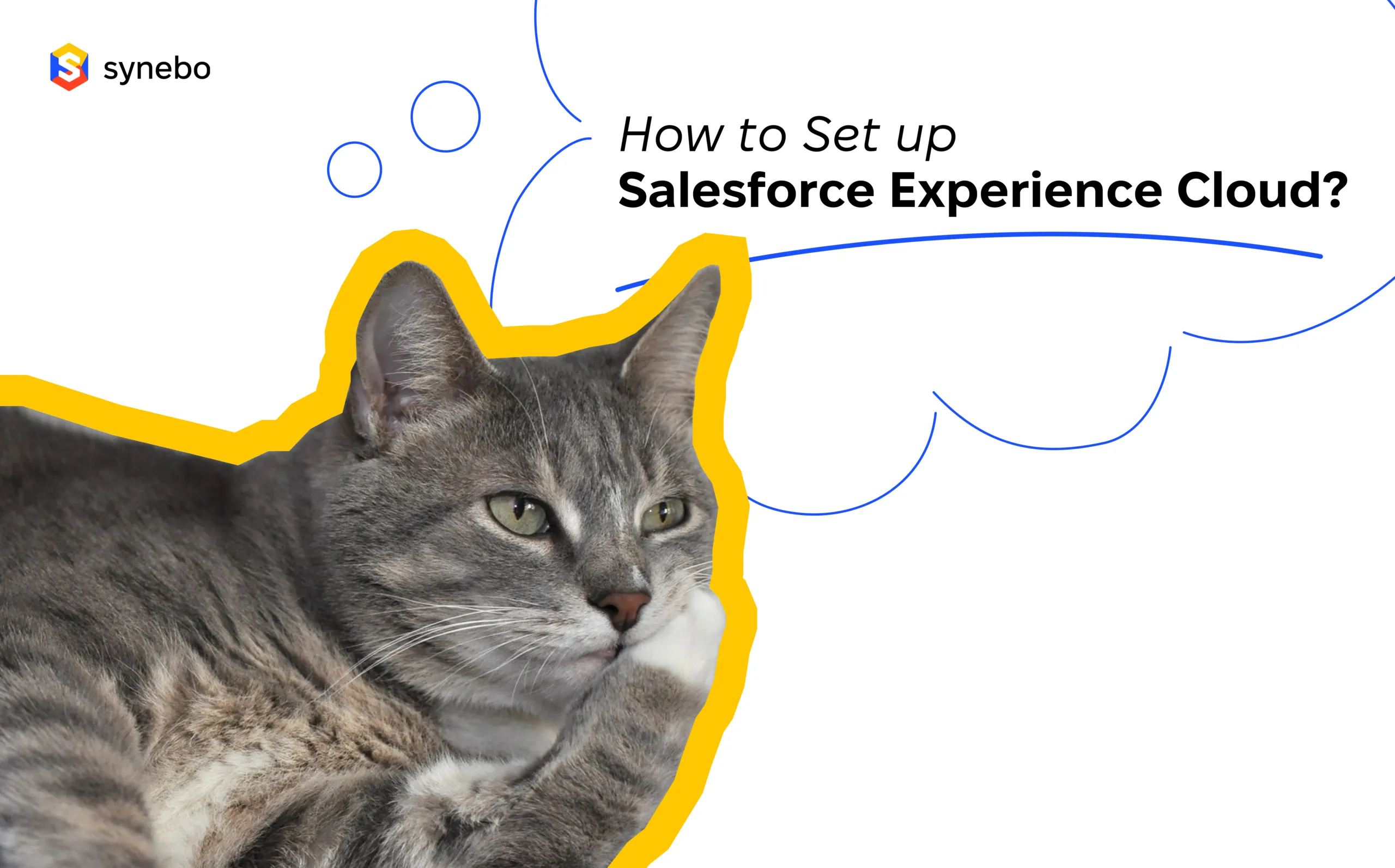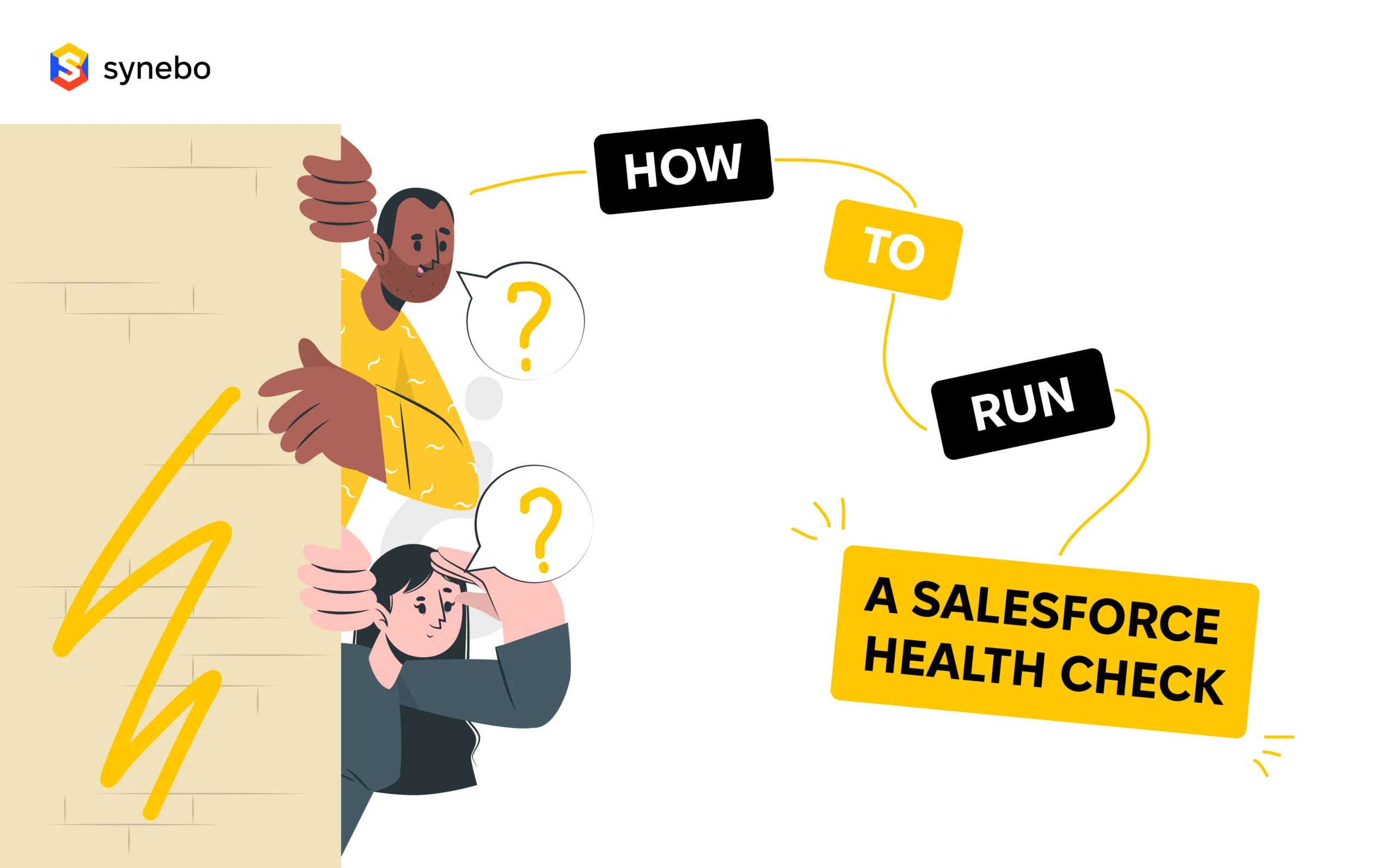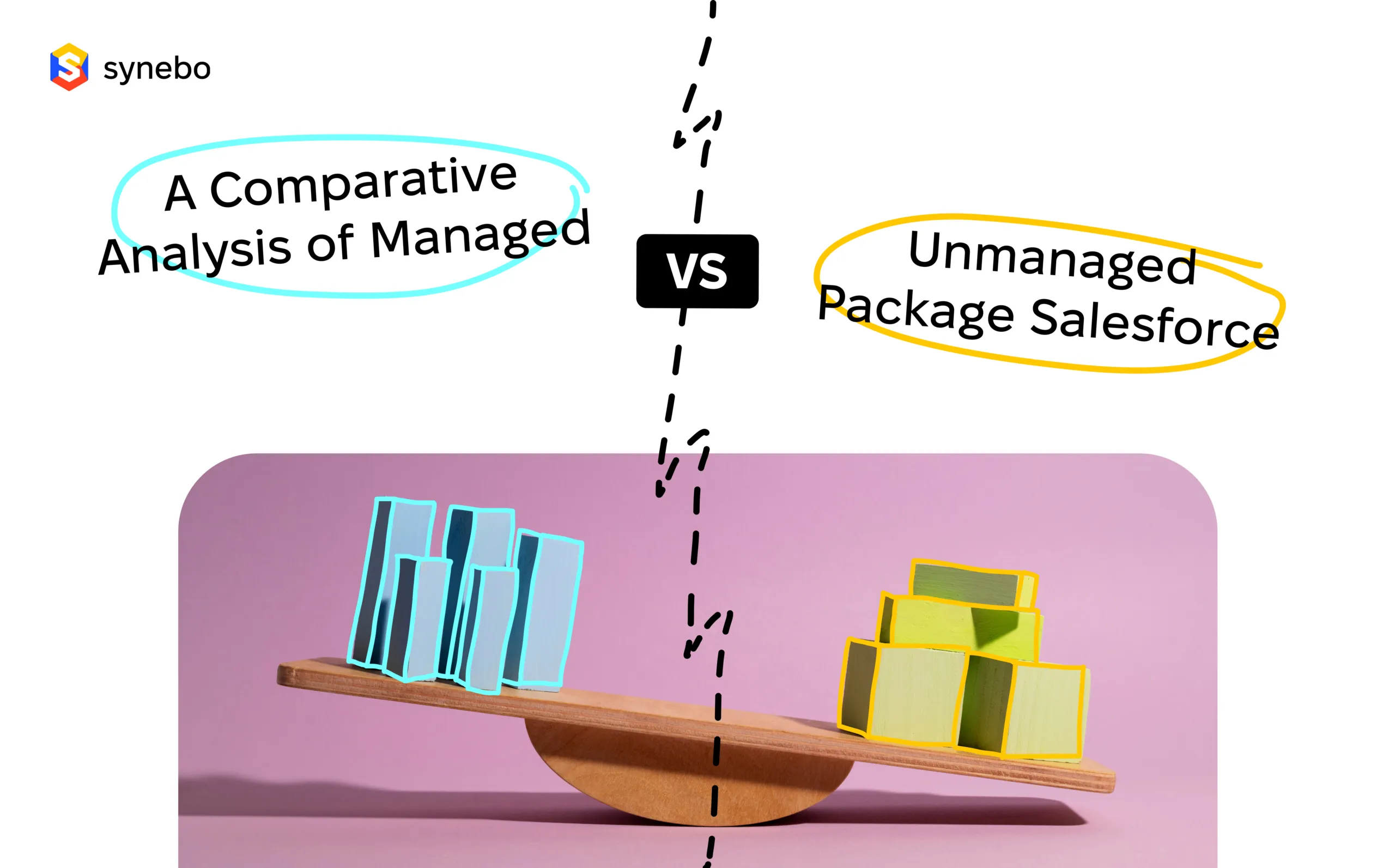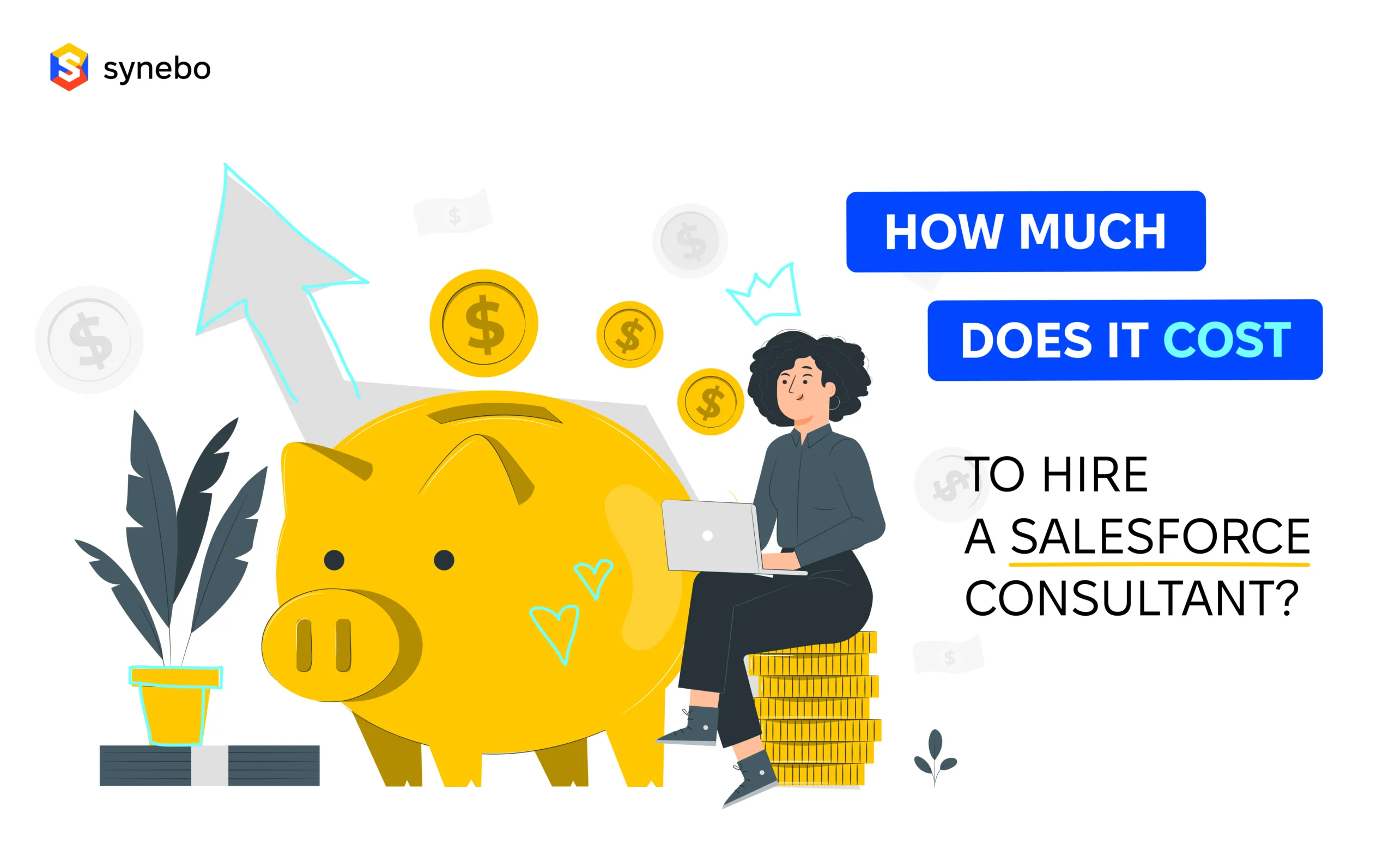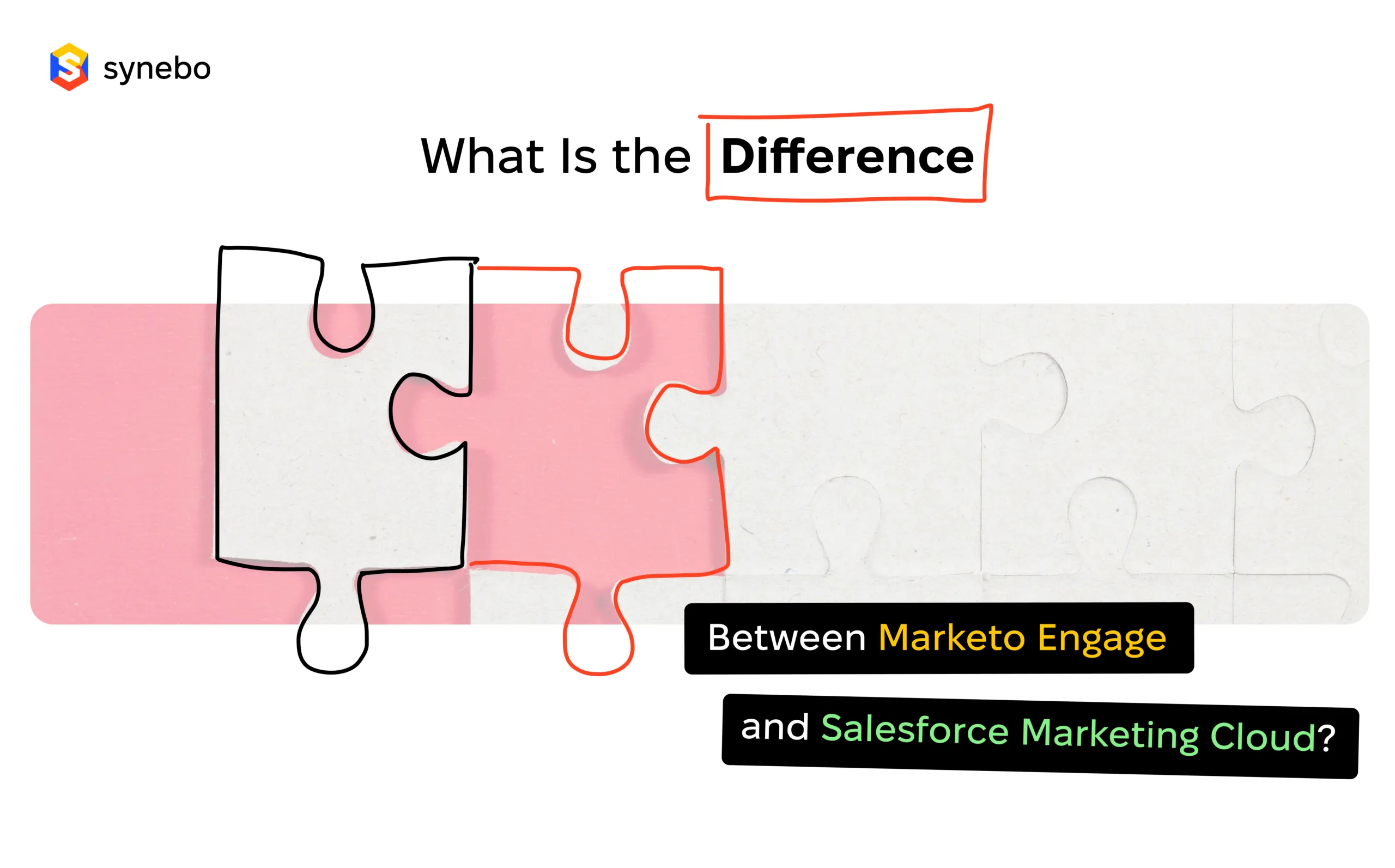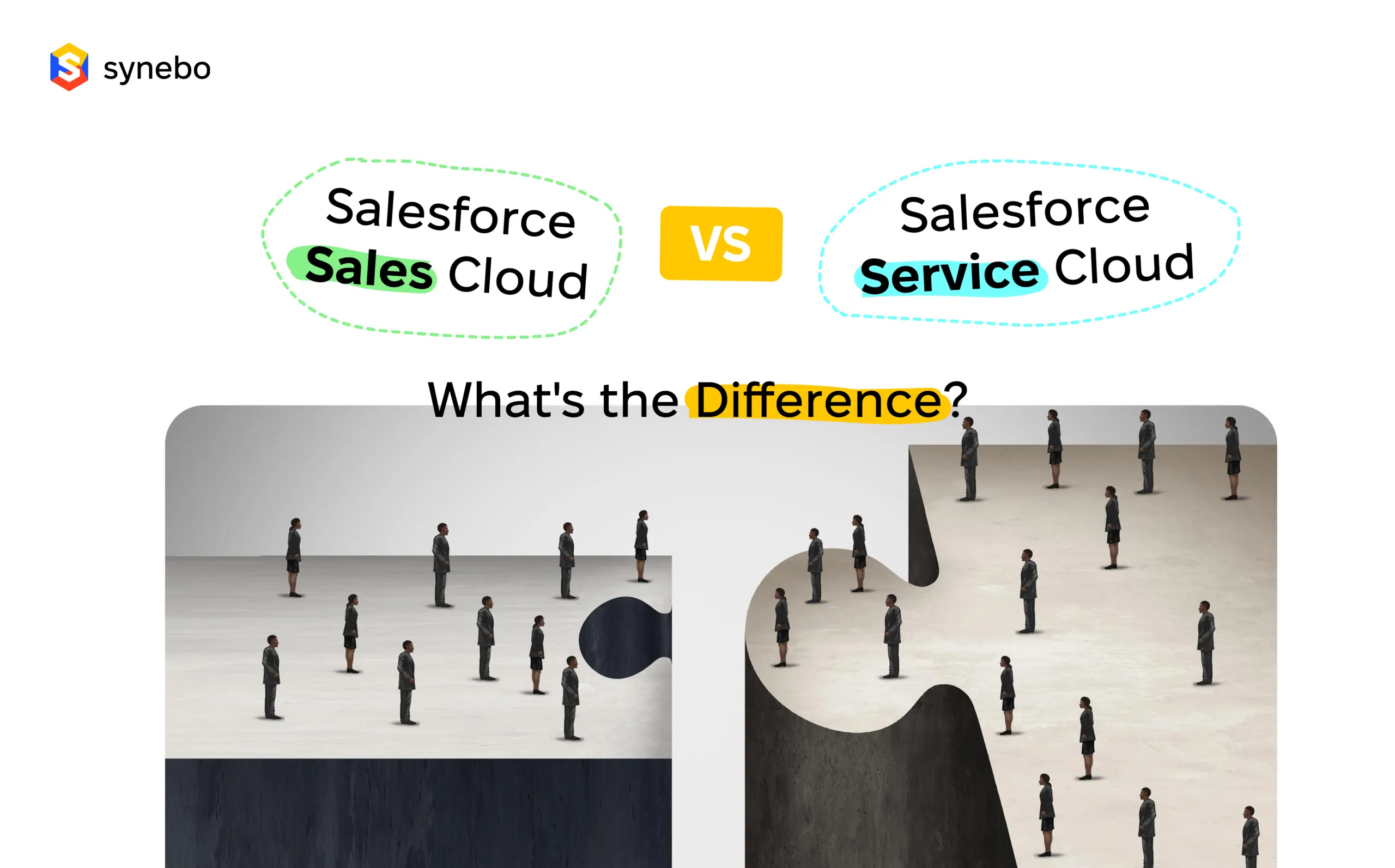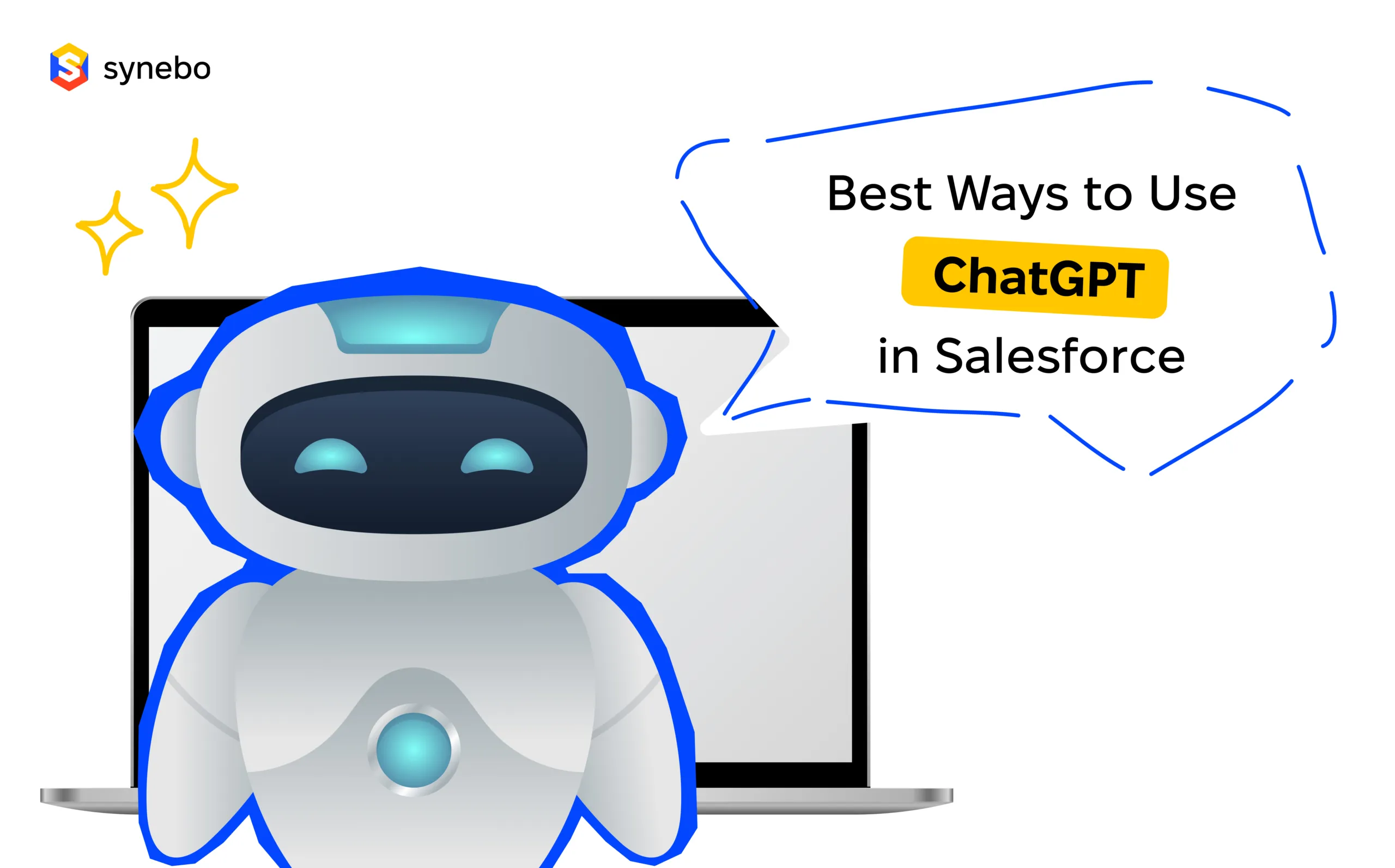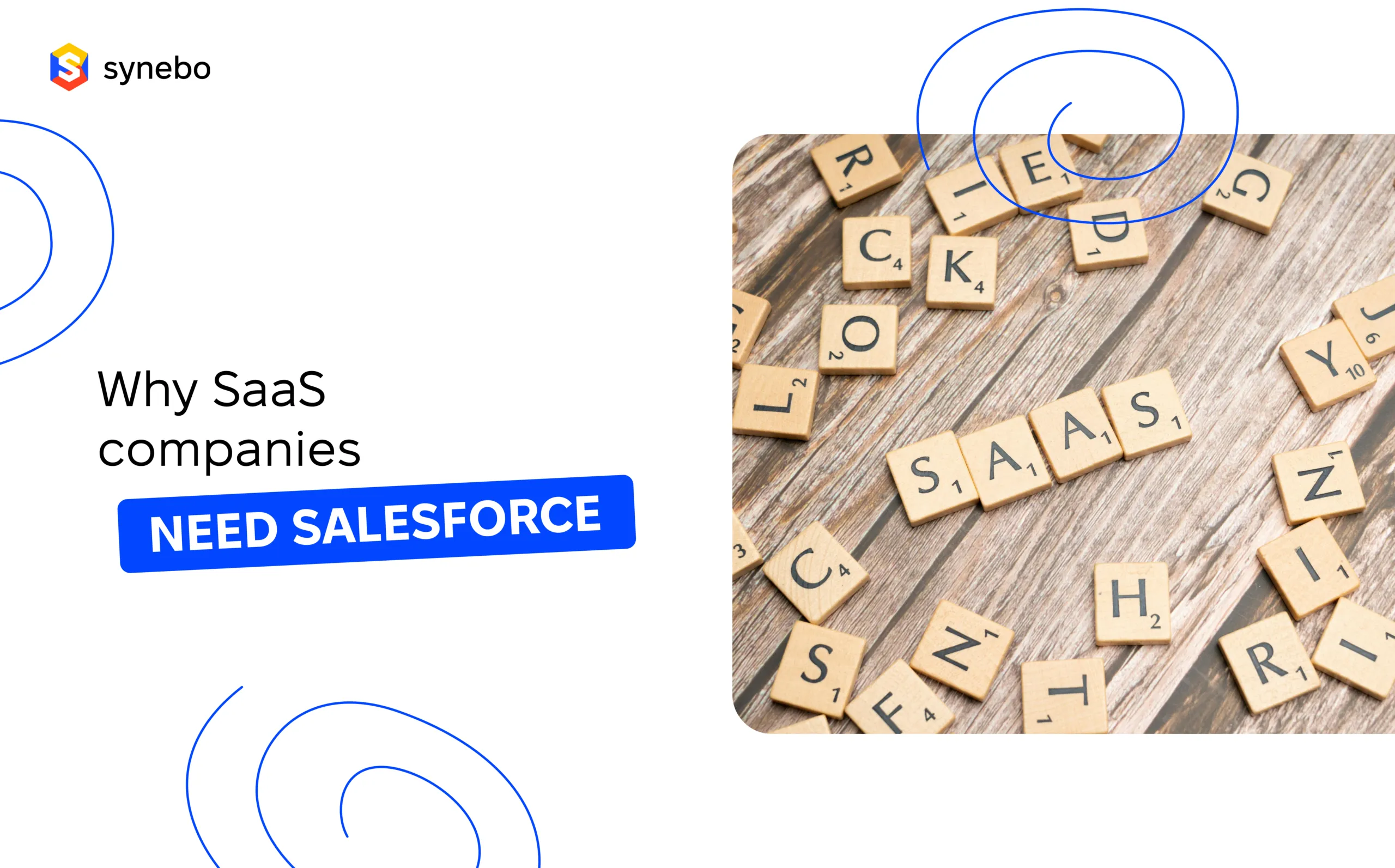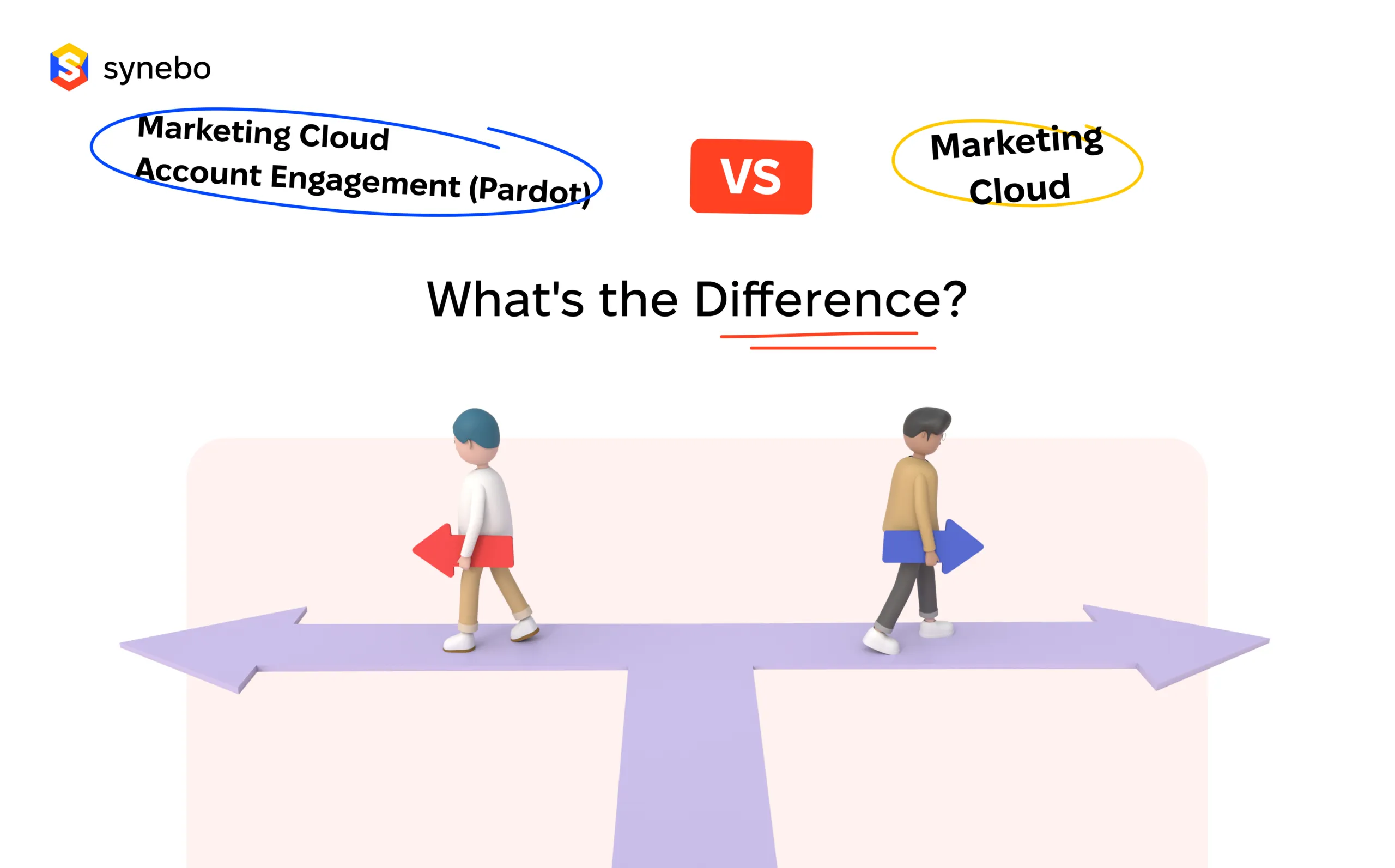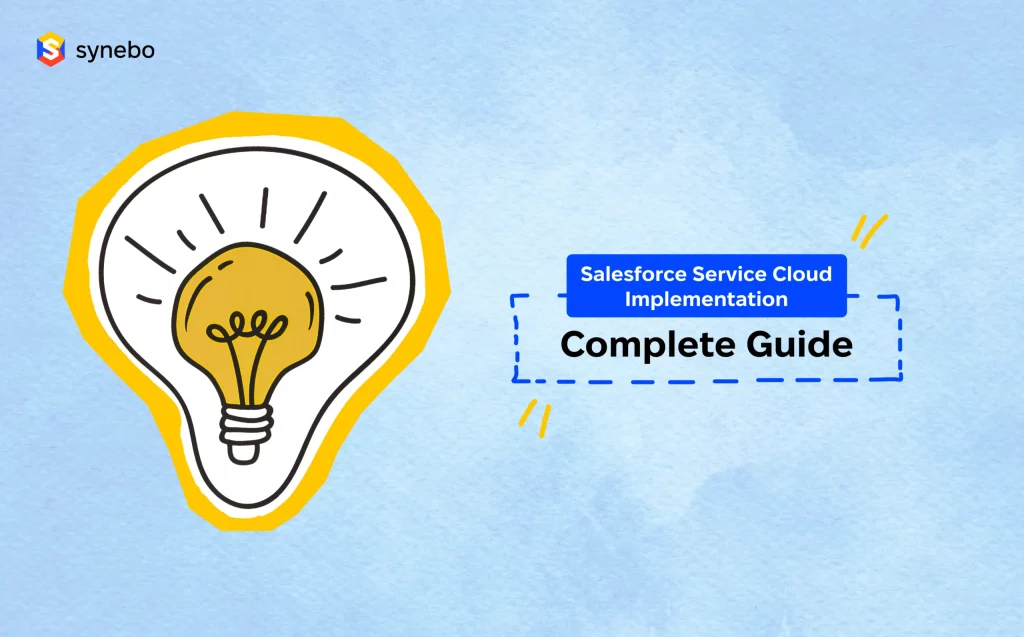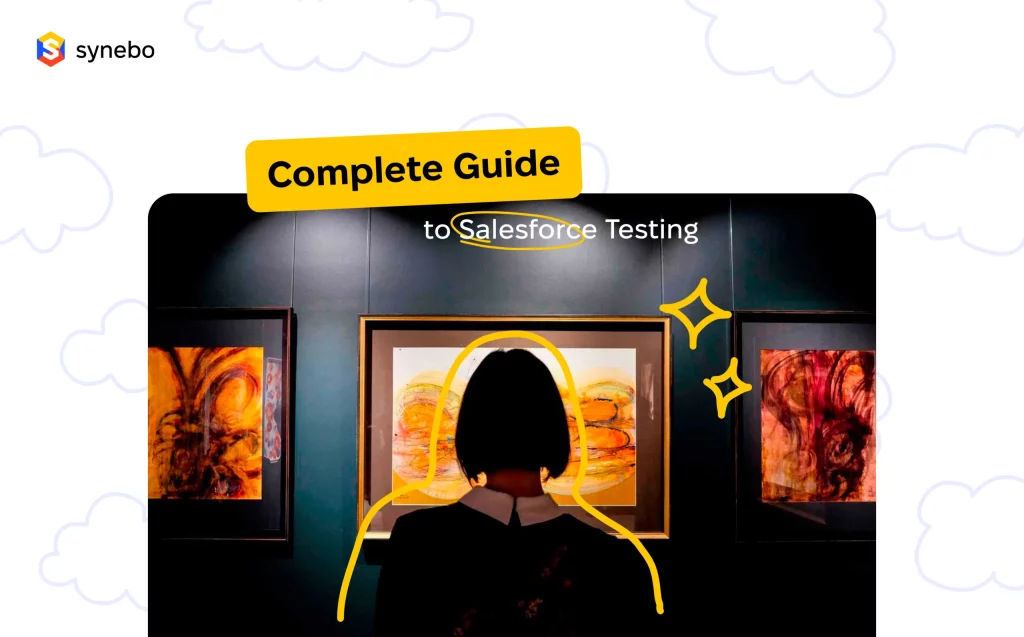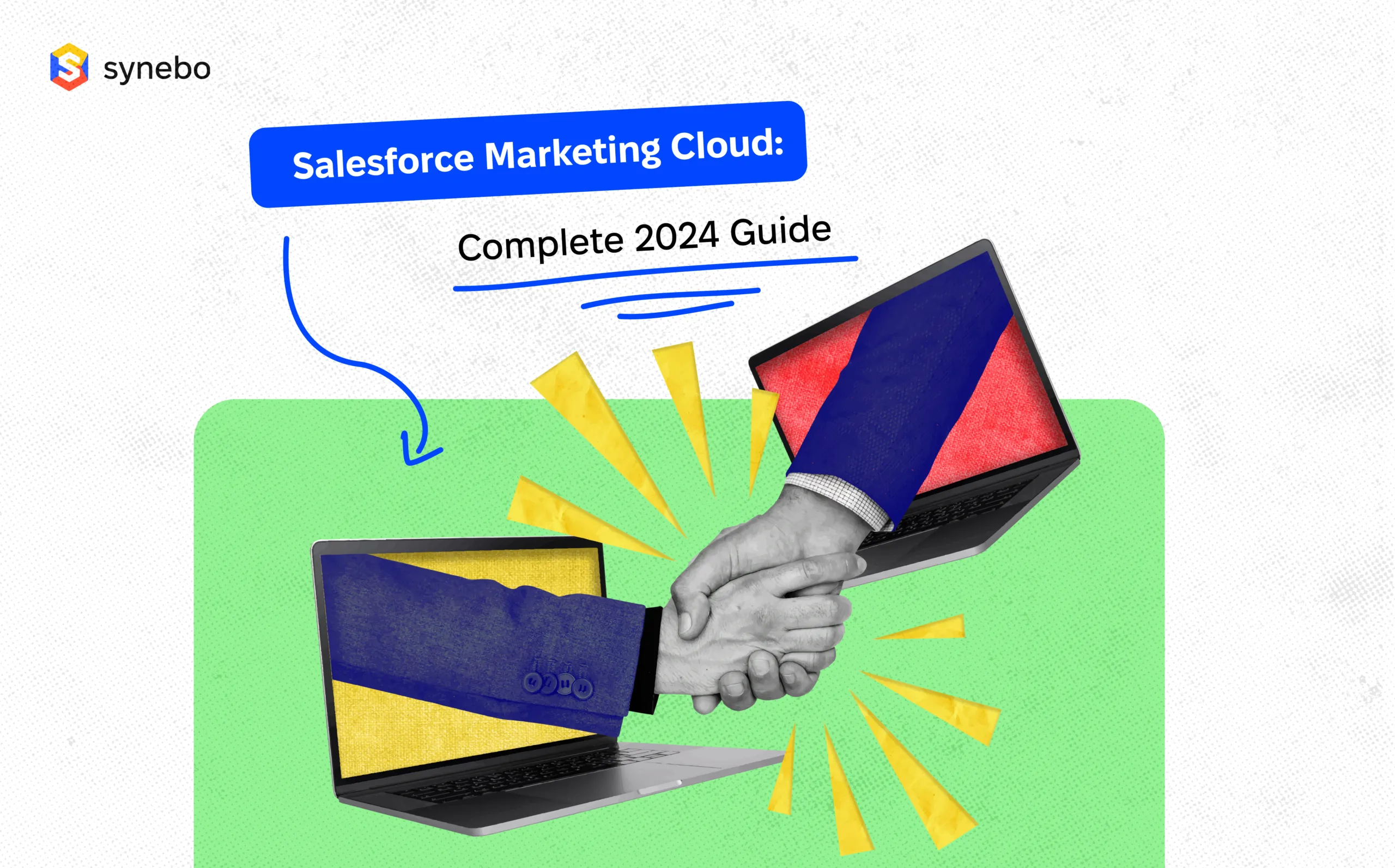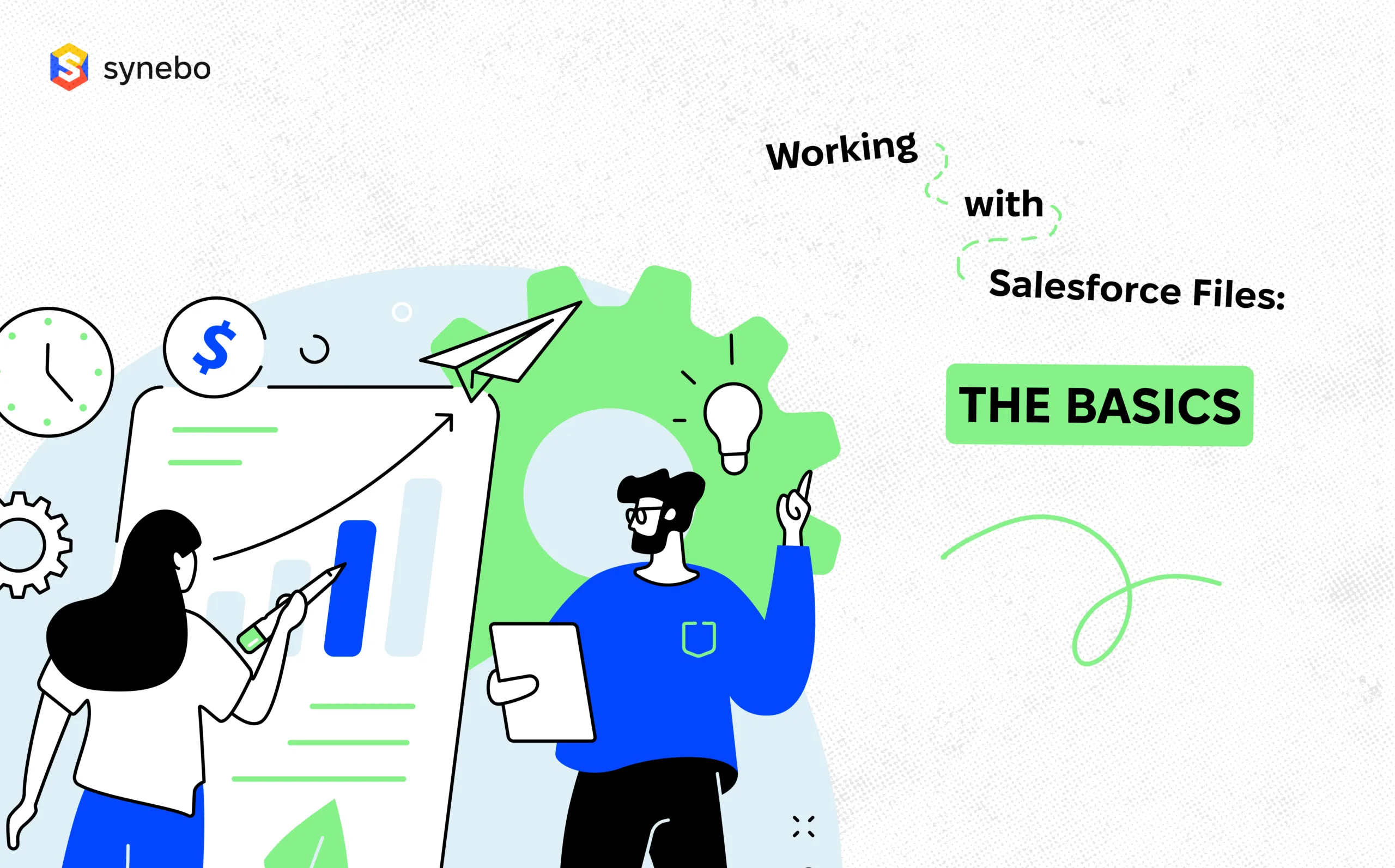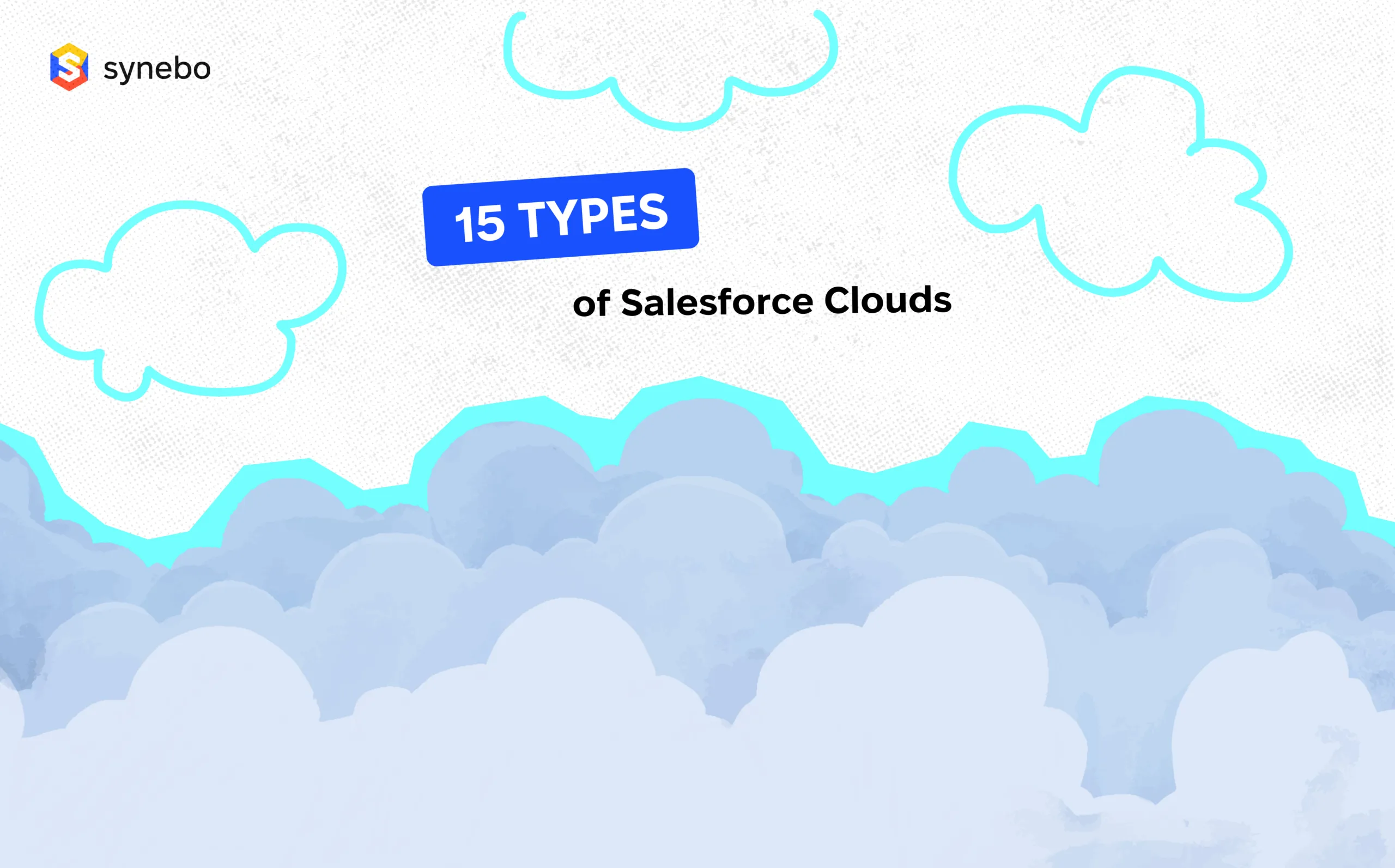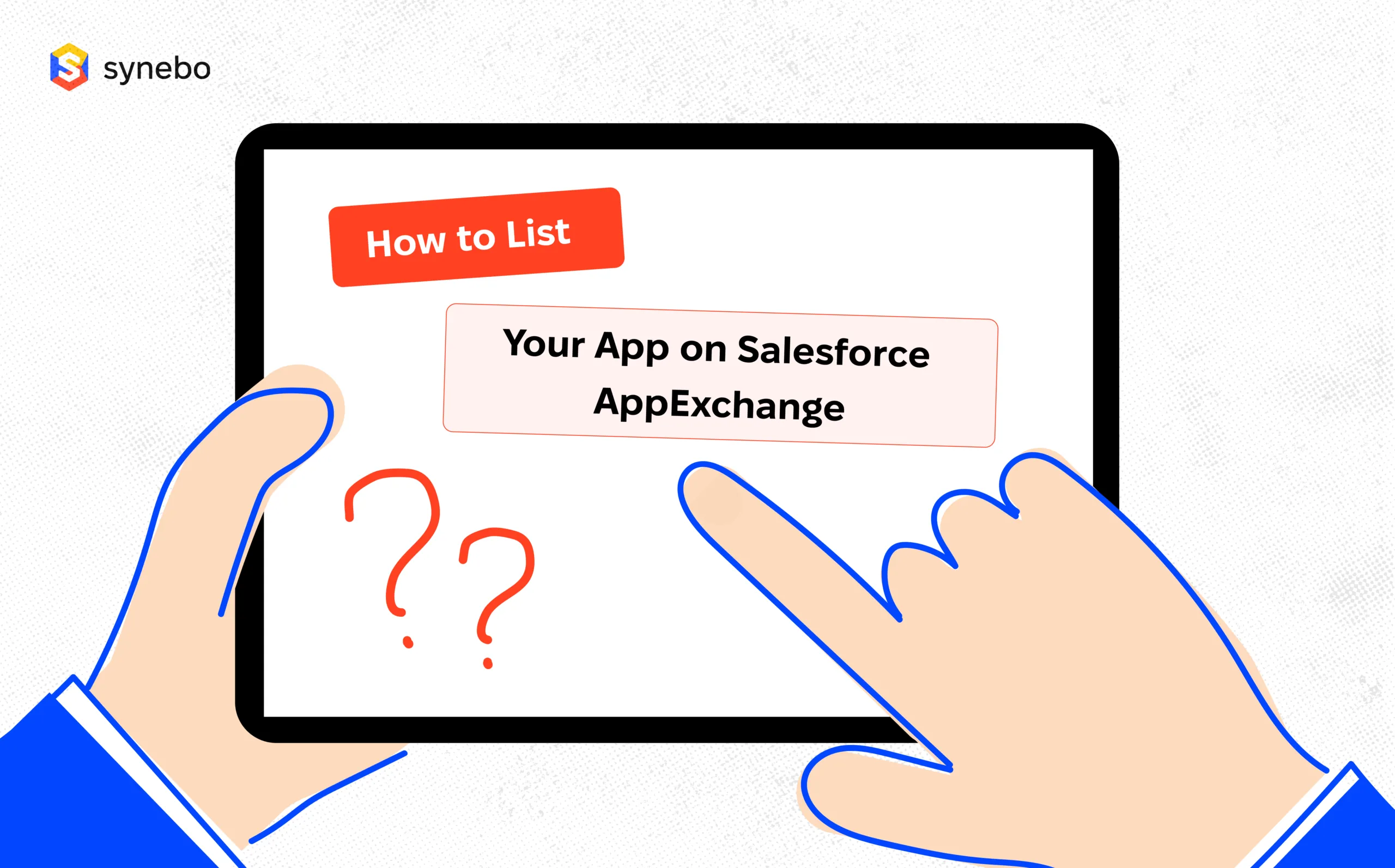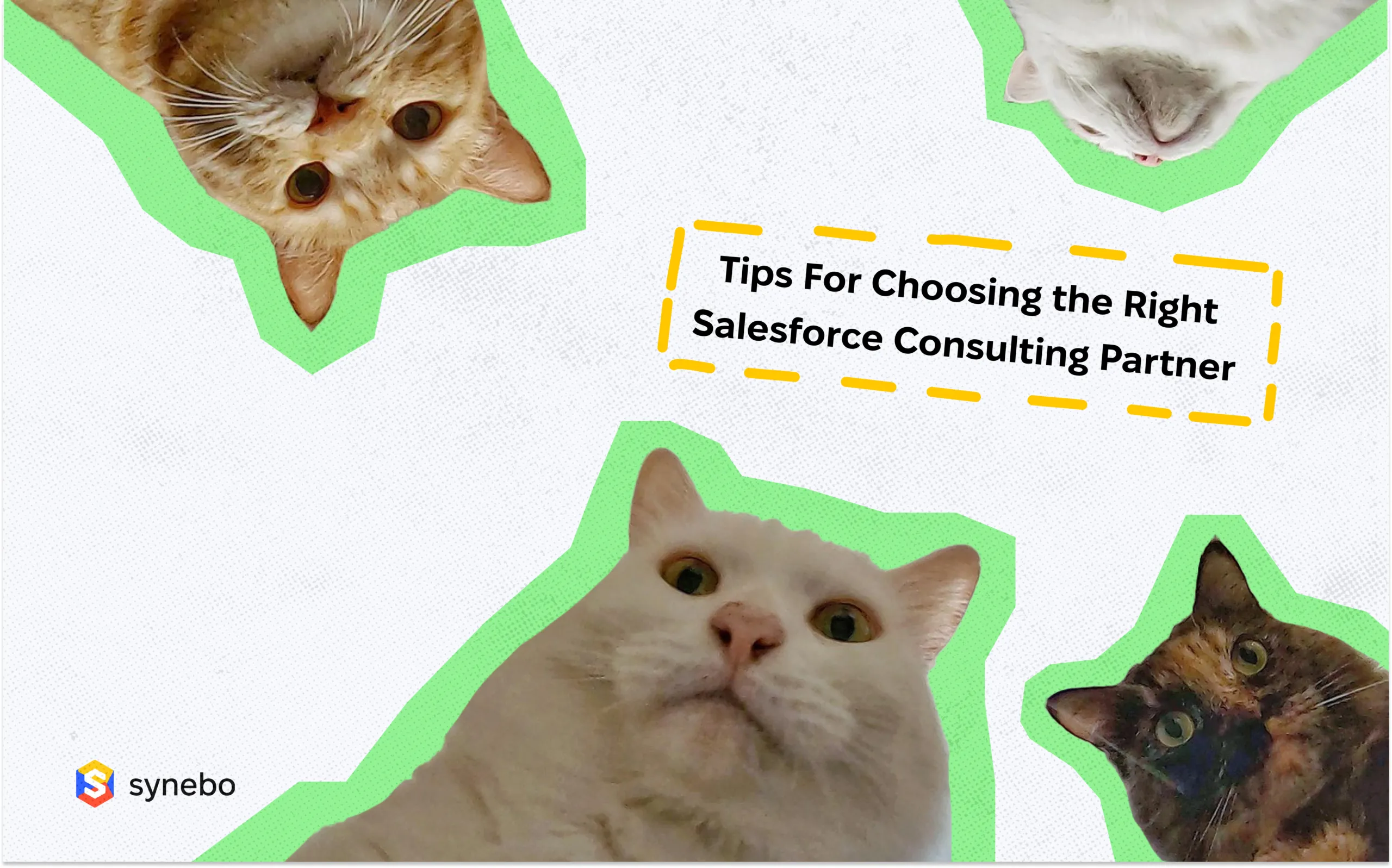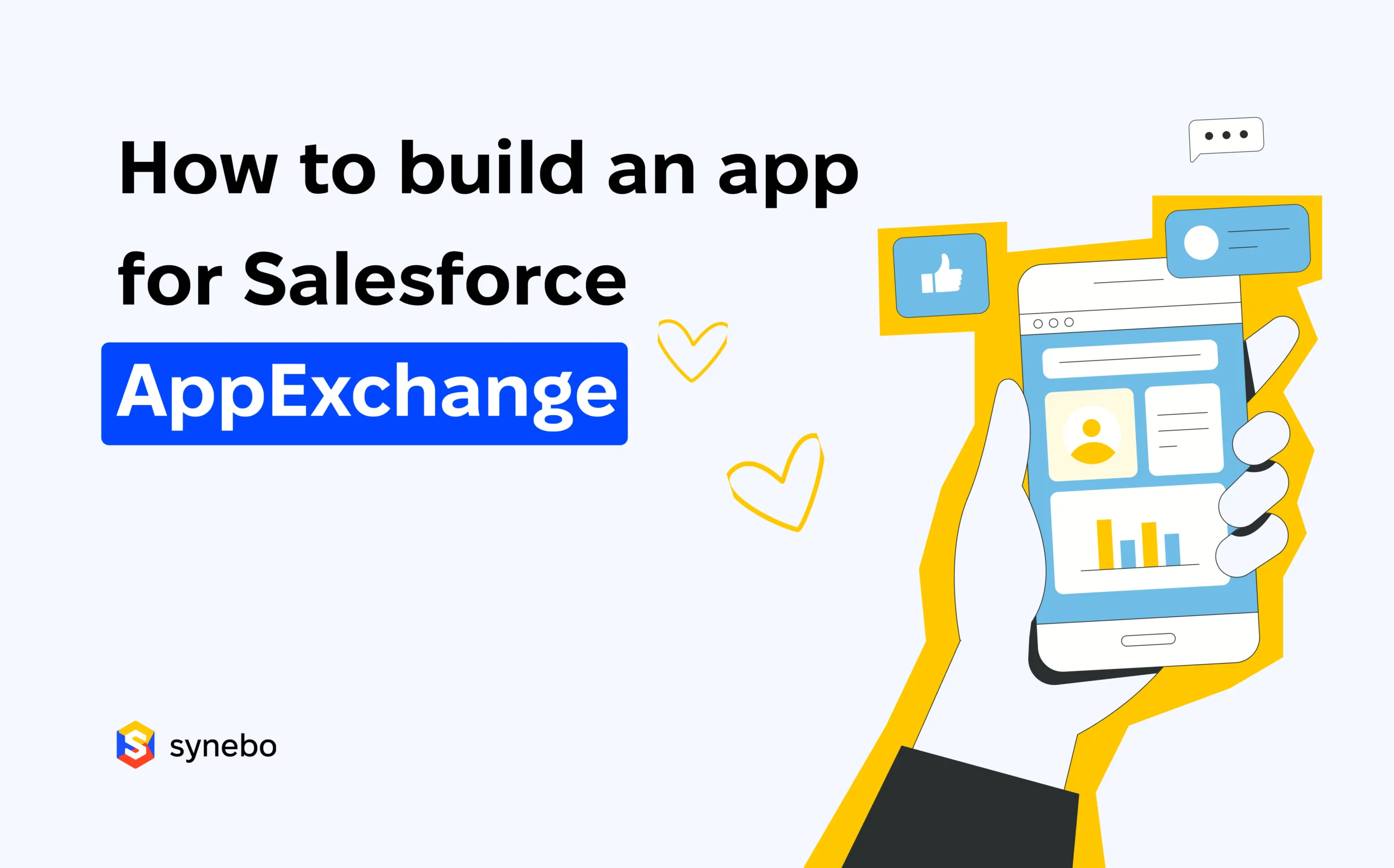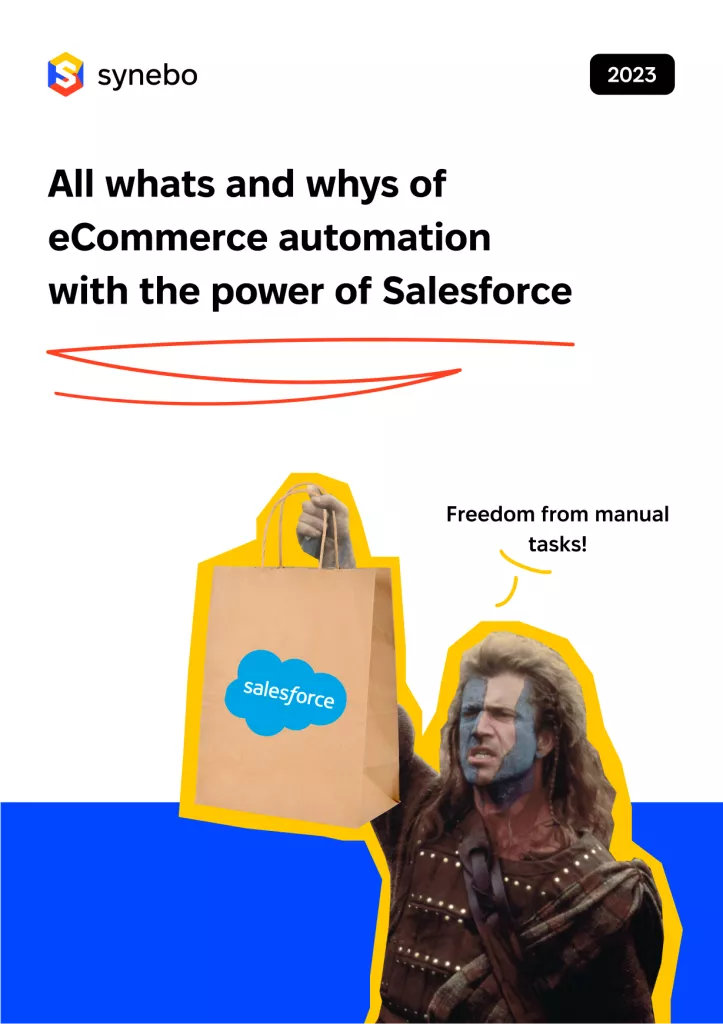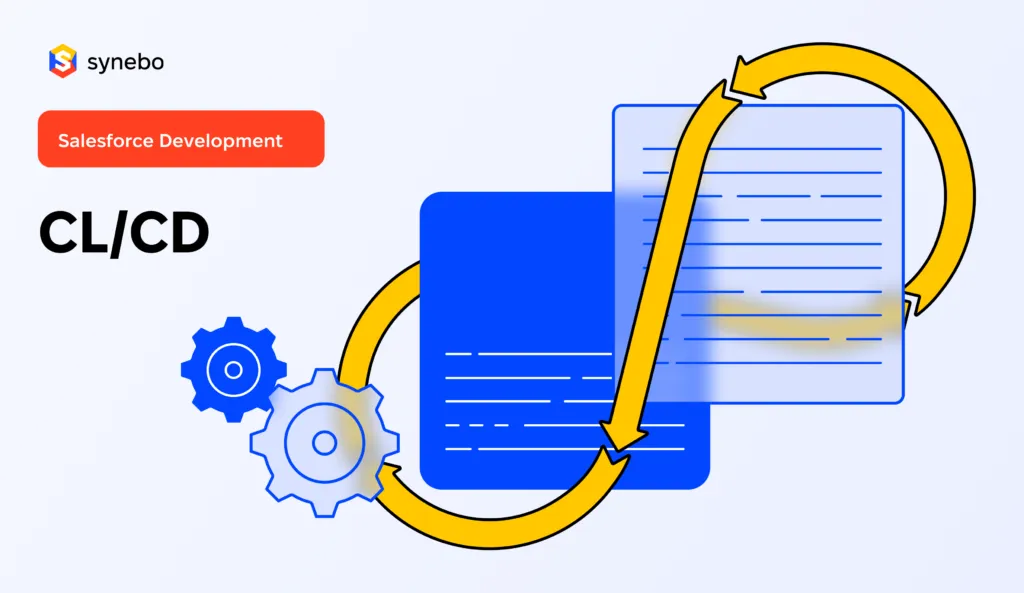Salesforce B2B Commerce Cloud: Benefits, Features and Implementation
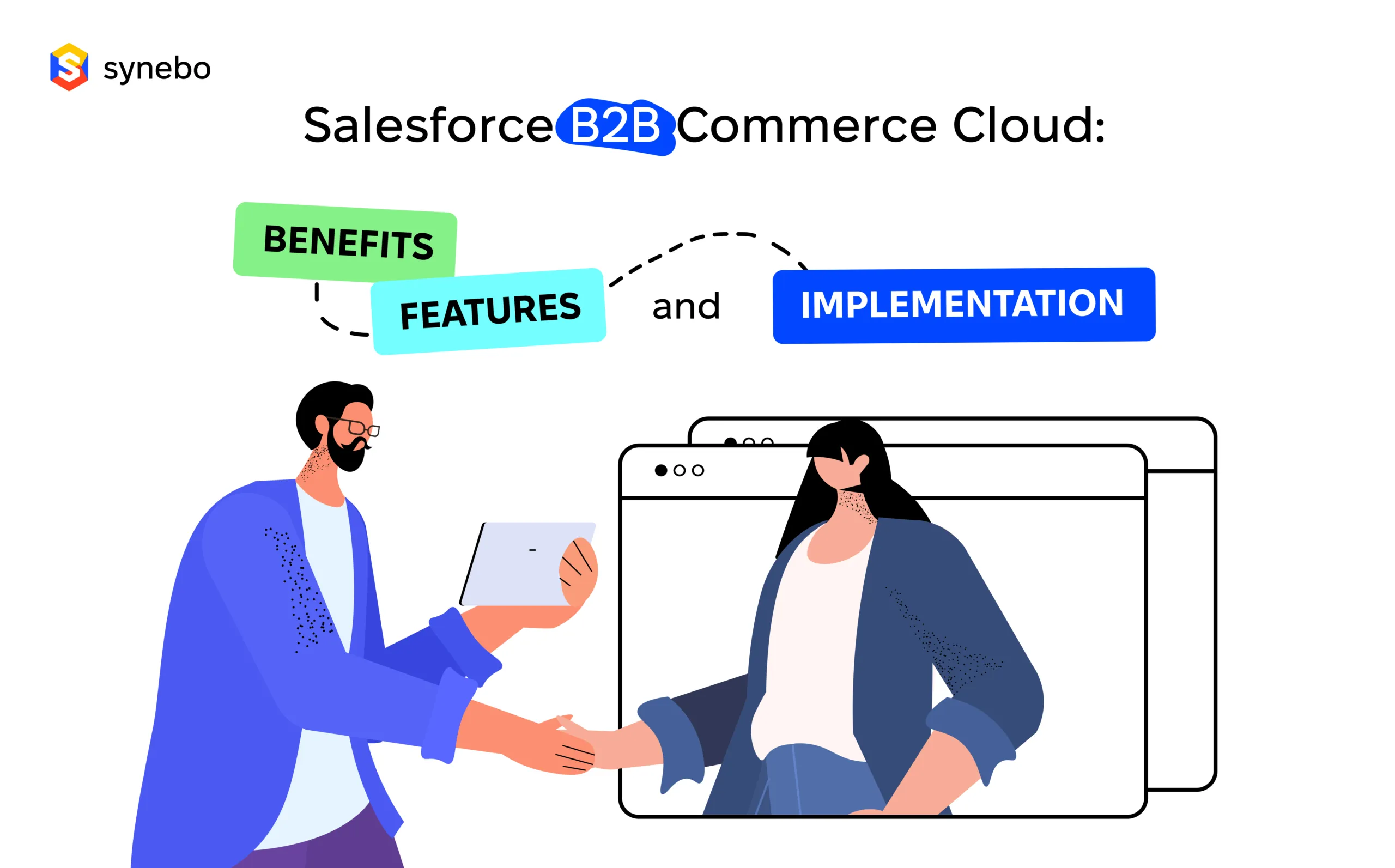
The business-to-business (B2B) online market is growing fast. Statista expects it to hit $8.6 trillion by 2027. To keep up, companies need a strong platform like Salesforce B2B Commerce Cloud. This tool helps businesses smooth out their operations, make customers happier, and grow faster.
As a leading Salesforce development company, Synebo recognizes the immense value B2B Commerce Cloud brings to organizations across various industries. In this article, we’ll discuss what Salesforce B2B Commerce Cloud is, its main features, how it helps optimize business processes, and the steps to implement it.
What’s Salesforce B2B Commerce Cloud?
B2B Commerce Cloud is a cloud-based solution that allows organizations to create and manage online stores tailored to their B2B customers’ unique needs. It provides a centralized platform for managing complex product catalogs, pricing structures, and customer-specific contracts. With B2B Commerce Cloud, businesses can deliver an intuitive, self-service buying experience, empowering customers to make informed purchasing decisions.
Imagine a company like General Electric, which sells a wide range of products and services, from aviation engines to healthcare equipment, each with its own pricing and contracts. With B2B Commerce Cloud, General Electric can more easily manage this diversity by maintaining a detailed catalog of its offerings, including specific prices and contract details. This streamlines the purchasing process for their customers and ensures they always have access to the most current and accurate information.
Want to know more? Check out our guide on the differences between Commerce Cloud B2B and B2C.
Key Features of Salesforce B2B Commerce Cloud
Salesforce B2B Commerce Cloud boasts a range of features that empower businesses to drive growth and profitability. Let’s take a closer look at all of them.
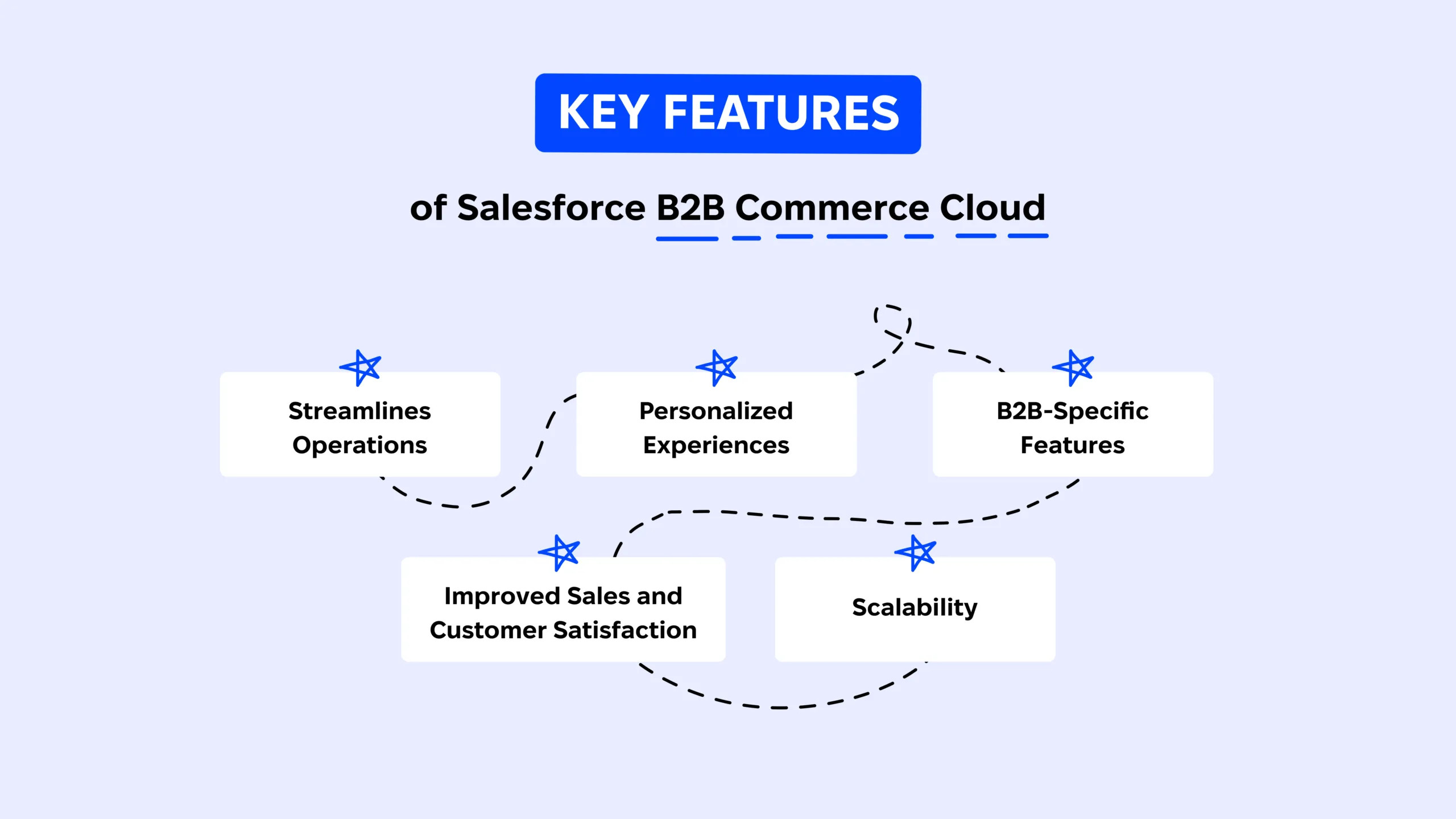
- Streamlined operations. B2B Commerce Cloud provides a centralized platform to manage all your B2B e-commerce operations, including inventory, orders, customer information, and more. This eliminates the need for multiple systems, reducing complexity and improving efficiency.
- Personalized experiences. The platform allows you to create customized online storefronts for different customers or groups of customers. This can include features like account-specific pricing, personalized product recommendations, and past order history for repeat purchases.
- B2B-specific features. B2B Commerce Cloud caters to the specific needs of B2B transactions. It can handle complex product catalogs with multiple variations, manage large order quantities, and automate tasks like reordering frequently purchased items.
- Improved sales and customer satisfaction. By providing a smooth and efficient buying experience for your B2B customers, B2B Commerce Cloud can help you increase sales and improve customer satisfaction. Features like self-service options and easy order tracking can lead to happier customers.
- Scalability. The cloud-based platform is designed to scale with your business. This means you can add new features and functionality as your B2B e-commerce operation grows.
Interested in expanding your Salesforce knowledge? Dive into our article on 15 Types of Salesforce Clouds.
3 Key Steps to Implement B2B Commerce Cloud
Implementing B2B Commerce Cloud successfully requires careful planning and execution. Let’s explore the main steps involved in the implementation process.
#1 Planning and Strategy
The initial phase involves defining your objectives, pinpointing crucial stakeholders, and charting out a roadmap. This phase demands a thorough understanding of your business needs, customer journey mapping, and the establishment of metrics for success. It’s a foundational step ensuring your B2B Commerce Cloud implementation is on the right track.
Planning and strategy example: Consider a business in the healthcare industry aiming to implement a B2B Commerce Cloud. The unique requirements might include compliance with health regulations, managing sensitive patient data, and integrating with specialized healthcare systems. In the planning phase, this business would define goals such as enhancing data security, streamlining patient data management, and ensuring system interoperability, thereby laying out a clear, industry-specific roadmap for implementation.
Looking for a trusted provider of Salesforce consulting services? Reach out to Synebo development team.
#2 Choosing the Right Platform
Selecting an appropriate B2B Commerce Cloud platform is critical. Assess various platforms for their features, scalability, and how well they integrate with your current systems. Key considerations should include integration ease, responsiveness on mobile devices, and the flexibility of customization. Opt for a platform that not only meets your current business needs but also aligns with your future aspirations.
Choosing the right platform example: A retail company looking for a B2B Commerce Cloud platform would prioritize one that offers advanced features like AI-powered recommendations, high scalability for handling peak shopping seasons, and seamless Salesforce integration with their existing inventory management system. This choice is influenced by the company’s need for a solution that not only enhances the buying experience for their B2B clients but also supports anticipated growth in online B2B sales.
#3 Integration and Configuration
Integrating B2B Commerce Cloud with existing systems such as ERP and CRM is crucial for a smooth transition. This stage involves tailoring the platform to fit your business processes, including setting up pricing rules, contract management, and order workflows. Rigorous testing and quality assurance are paramount to ensure a successful launch.
Integration and configuration example: An automotive parts distributor integrating B2B Commerce Cloud would focus on syncing the platform with its supply chain management system to ensure real-time inventory updates, automating pricing adjustments based on supplier costs, and setting up a streamlined order processing workflow. This phase would include extensive testing to guarantee that the platform can handle complex orders and logistics scenarios, ensuring a seamless experience for B2B customers.
Seeking a reliable development team for your Salesforce project implementation? Get in touch with the Synebo.
Overcoming Top Challenges in B2B Commerce Cloud Implementation
Implementing B2B Commerce Cloud can present challenges that need to be addressed proactively. Let’s explore some common challenges and strategies to overcome them.
Data Migration Issues
Migrating data to B2B Commerce Cloud from outdated systems involves complexities, particularly with large datasets. It necessitates detailed data analysis, cleansing, and mapping to ensure data integrity during the transfer.
- How to overcome: To tackle this, employ data migration tools and methodologies designed for efficient and accurate data movement. Begin with a comprehensive data audit to spot and rectify inconsistencies—like duplicate entries and formatting issues. Ensuring data quality upfront diminishes risks of data loss or corruption, paving the way for a smoother migration.
Security Concerns
The transition to B2B Commerce Cloud requires stringent security measures to safeguard sensitive customer and company information. Achieving high levels of data security and compliance is paramount.
- How to overcome: Strengthen your security framework by incorporating data encryption, implementing strict access controls, and conducting regular security evaluations. Use advanced encryption techniques and manage encryption keys securely to ensure data is unreadable to unauthorized parties. Routine security checks help uncover and mend vulnerabilities, fortifying your defenses against potential breaches.
Training and Adoption
For B2B Commerce Cloud to be effective, thorough training and a comprehensive change management strategy are essential. Ensuring that employees are proficient in using the new system and adapting to revised processes is crucial for smooth operation.
- How to overcome: Develop a detailed training program that educates staff about the platform’s features and new operational workflows. Address any queries they might have to foster a positive attitude towards the change. Promoting the benefits of the B2B Commerce Cloud and providing continuous support will enhance user adoption. Keep the team updated on new features and improvements to maintain engagement and enthusiasm.
Interested in finding the right Salesforce partner? Read our article on key questions to ask potential Salesforce implementation partner.
Final Take
Keeping up with the latest in B2B commerce is crucial, and Salesforce’s B2B Commerce Cloud leads the pack. It’s designed to adapt to new trends such as smart recommendations, selling on multiple channels, integrating smart devices into sales processes, and offering subscription services. This platform helps businesses meet the evolving needs of their customers and stay ahead of the competition.
Synebo is here to help you make the most of Salesforce B2B Commerce Cloud. We’re a team of experts certified by Salesforce, offering everything from advice to building and setting up what you need. Working with Synebo means getting custom solutions that make your business stronger and your customers happier. If you want to improve how you sell to other businesses using Salesforce, get in touch with us. Let’s work together to make your business even better.










